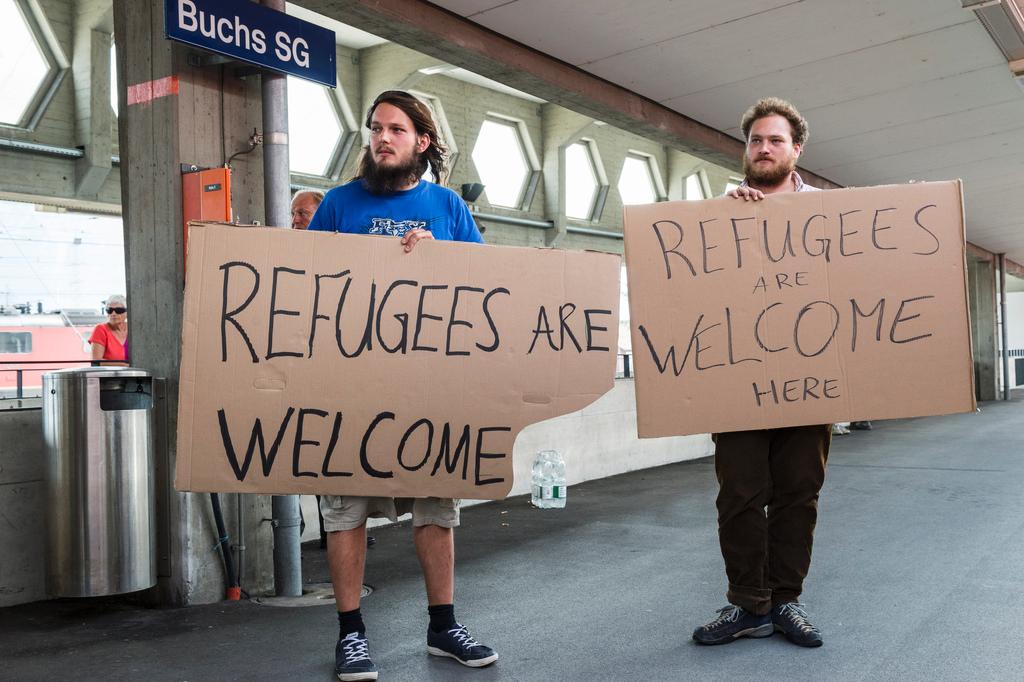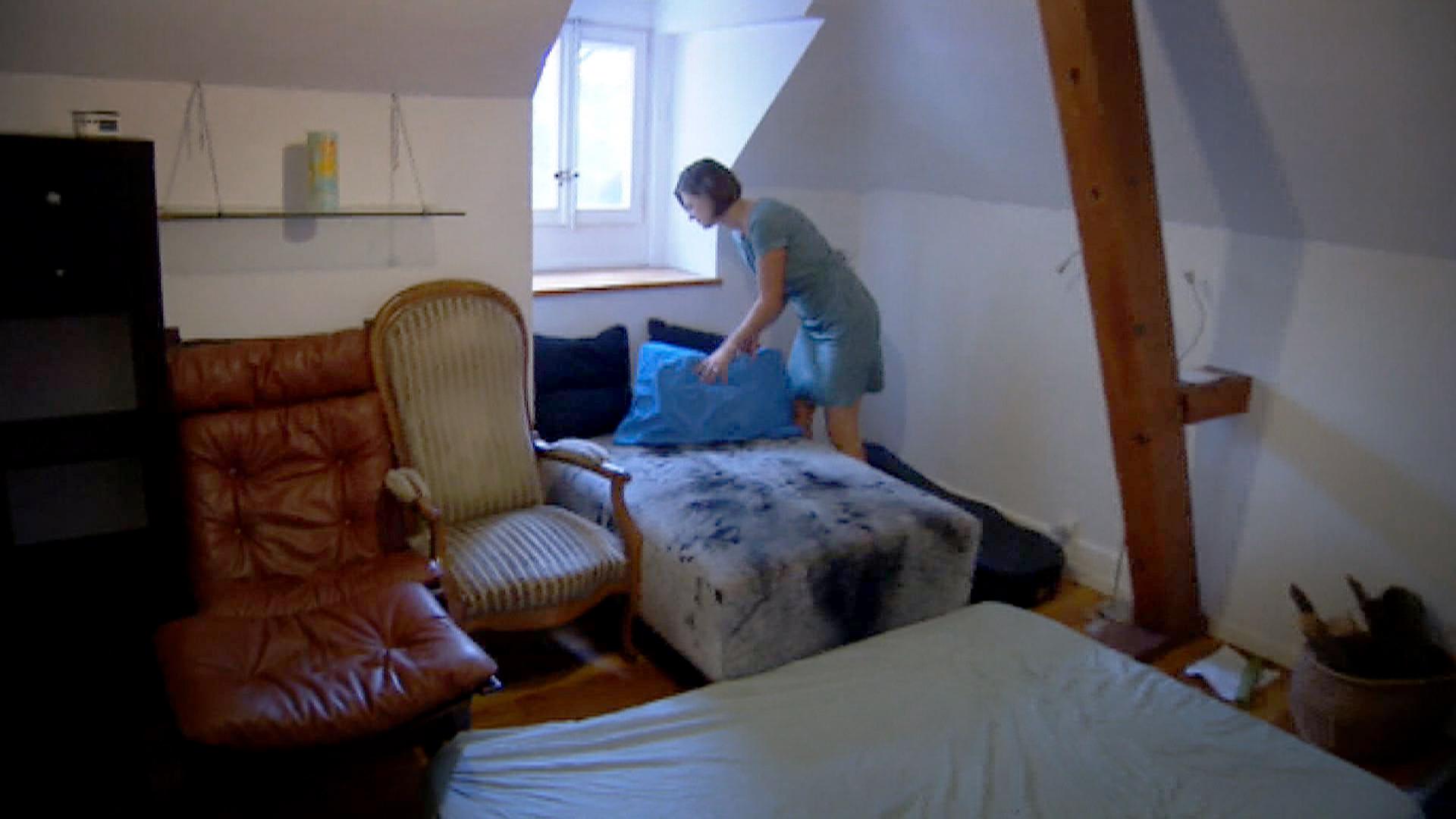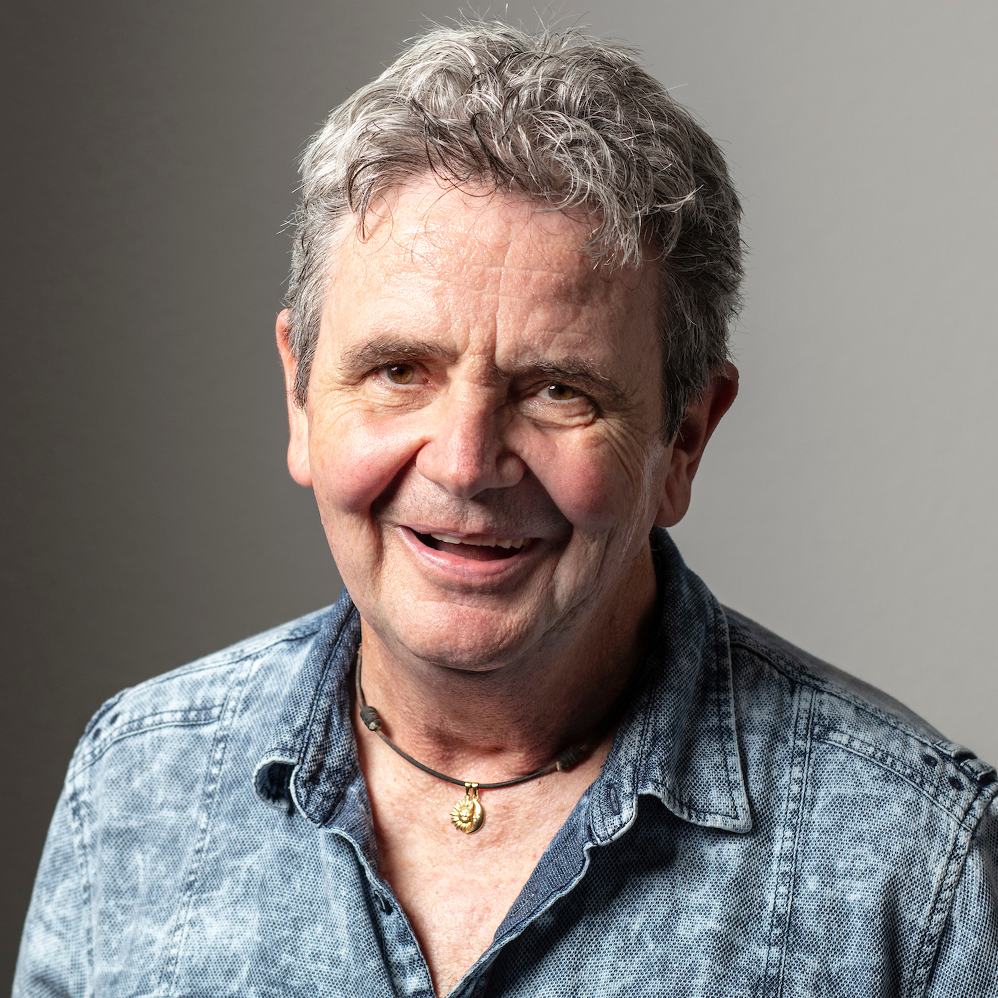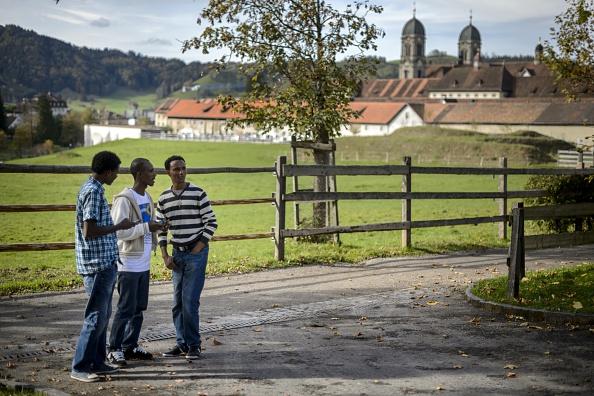Can the Swiss match Germany’s generosity?

Germany has opened its borders and heart to Syrian refugees, but where does its neighbour Switzerland stand? It's fair to say that - while a good pupil - it “could do better”.
After the shocking photos of a small boy lying dead on a Turkish beach came, last weekend, images of joy in Germany. Crowds in Munich and Frankfurt welcomed Syrian refugees with open arms, showing that the decisions taken just hours earlier by Angela Merkel’s government were so much more than just words.
At the same time – and in stark contrast – a handful of volunteers welcomed a single Syrian family on the platform at Buchs, on Switzerland’s eastern border. Should Switzerland be embarrassed by the generosity of its big northern neighbour?
“What has been happening these past days in Germany is exceptional. The country is again taking on the leading role that it played during the Balkan crisis at the beginning of the 1990s,” said Robin StünziExternal link, a doctoral student and expert in asylum issues at Neuchâtel University.
“Angela Merkel is sending out a triple message: to her people, the Syrians and to Europe, which says: ‘the ball’s in your court now’.”
Stünzi argues that while Switzerland may not be as proactive as Germany this doesn’t mean the nation is holding back. “In terms of being open, Switzerland is even above average in terms of European countries.”
To see if Switzerland is doing enough, you have to “look at what has already been done since 2013, which hasn’t been very present in the media”, adds Céline Kohlprath, spokeswoman at the State Secretariat for Migration (SEM)External link.External link
3,000 vs 800,000?
In 2013, when chemical weapons use by Syria was a hot topic, the Swiss government decided that Syrians who were already in Switzerland were allowed to bring over members of their extended family (including children over the age of majority, brothers and sisters, grandparents).
To date, 4,700 people have arrived under these conditions. “Not everyone has submitted an asylum request,” pointed out Kohlprath. “But those who haven’t have received temporary residence permits instead.”

More
When solidarity meets red tape
Also in 2013, the cabinet allowed in 500 especially vulnerable refugees, including women and children, from Syria. Almost 410 have arrived to date and have benefited from this pilot programme, which is particularly strong on integration and is accompanied by specially trained staff.
On March 6 this year it was announced that Syrians with temporary residency in Switzerland could bring over their families without waiting the usual three years. In all, 1,000 Syrians are scheduled to come by the end of this year, with a further 2,000 refugees expected in the next two years after that.
Often quoted in the press, the total figure of 3,000 refugees seems somewhat small in relation to the 800,000 that Germany is ready to take in by the end of the year.
Stünzi says this could be misleading. “The media has jumped on this figure of 800,000 a bit too fast, a figure actually mooted at the beginning as a possible maximum. This would mean an extra half a million refugees in the last months of the year. We know from experience that entry peaks are in summer. So I don’t really see how we can get to such a number.”
Behind the numbers
Even in Switzerland the numbers don’t tell the whole story. Out of 1,000 special admissions expected this year, only 79 people have arrived so far, less than SEM had expected.
Why are there so few? It’s because the beneficiaries of these special government measures are not those who arrive at the borders. They are selected “in close cooperation with the United Nations Refugee Agency (UNHCR)”. Then they are put into UNHCR-run refugee camps in Syria’s neighbours (refugees currently number 1.9 million in Turkey, 1.1 million in Lebanon, 630,000 in Jordan and 250,000 in Iraq). After that, their files are submitted to the intelligence services to ensure that no Jihadi sympathisers have found their way in. All this takes time.
Unlike Berlin, Bern has not suddenly opened its borders in the face of a massive influx – because this influx does not exist. Whether they arrive by sea or land, migrants are following routes which don’t necessarily pass via Switzerland. And often they are trying to join compatriots or relatives abroad, and there aren’t many Syrians in Switzerland. In addition, the more liberal asylum policies in Germany and Sweden make those countries more attractive.
This would certainly explain the last monthly SEM figures: in August Switzerland registered 3,899 asylum requests, just three more than the month before. They were made up of people from Eritrea (1,610), Afghanistan (461) and just 401 from Syria.
Since the beginning of the conflict in Syria in 2011, Switzerland has received a total of 9,199 Syrians (31 August, 2015). Of these: 2,307 have received asylum, 5,540 temporary admission, with the situation of the remaining around 1,300 still open.
A good pupil, not a hero
When is enough, enough? This has been an issue for political parties in the run-up to the parliamentary elections on October 18.
Etienne Piguet, geographer and deputy president of the Federal Commission on Migration – made up of 30 experts – has had a look at the Swiss figures. In a blog for the magazine HébdoExternal link (link in French) he submitted them to different criteria by which an eventual allocation formula could be worked out for taking in asylum seekers in Europe – an, as yet, hypothetical situation.
If you look at the surface area and population, Switzerland is doing more than its duty. It welcomed more than 22,000 asylum seekers (all nationalities) in 2014, when it could have been content with just 9,000.
But the expert thought that wealth should be taken into account as well. If you add in GDP (Gross Domestic Product) and the unemployment rate, Switzerland could take in a few more asylum seekers than it has already done until now.
Piguet’s conclusion? “Switzerland is certainly a good pupil in terms of welcoming, but in terms of her wealth, she is no hero. If she wants to honour her humanitarian tradition, she should open her doors even wider”.
Stünzi also wants to believe in the Swiss humanitarian tradition. “I feel a growing awareness in Switzerland, especially concerning the Syrians. And the recent decisions taken in Germany, France, the United Kingdom and perhaps soon in other countries will reinforce this. We have seen this terrible photo of little Aylan, but even before that people were aware that these people must be helped.”
An accelerated system
Both the House of Representatives and the Senate agree that the asylum procedure in Switzerland should be sped up. In future all decisions should take a maximum of 140 days, with free legal representation to be given to applicants to ensure the process is not only quick, but also fair. Asylum seekers would have to remain in federal centres for the entire duration of the process.
The approval for the reform of current law was given after a ten-hour special debate in the House of Representatives on Wednesday. A pilot project of the accelerated system has already been running at an asylum centre in Zurich.
A motion by the Swiss People’s Party to stop any person applying for asylum or being registered as a refugee for a year was defeated in the debate, with a number of politicians from other parties dubbing the idea “coldhearted” and “shameless”.
Translated from French by Isobel Leybold-Johnson

In compliance with the JTI standards
More: SWI swissinfo.ch certified by the Journalism Trust Initiative





You can find an overview of ongoing debates with our journalists here. Please join us!
If you want to start a conversation about a topic raised in this article or want to report factual errors, email us at english@swissinfo.ch.